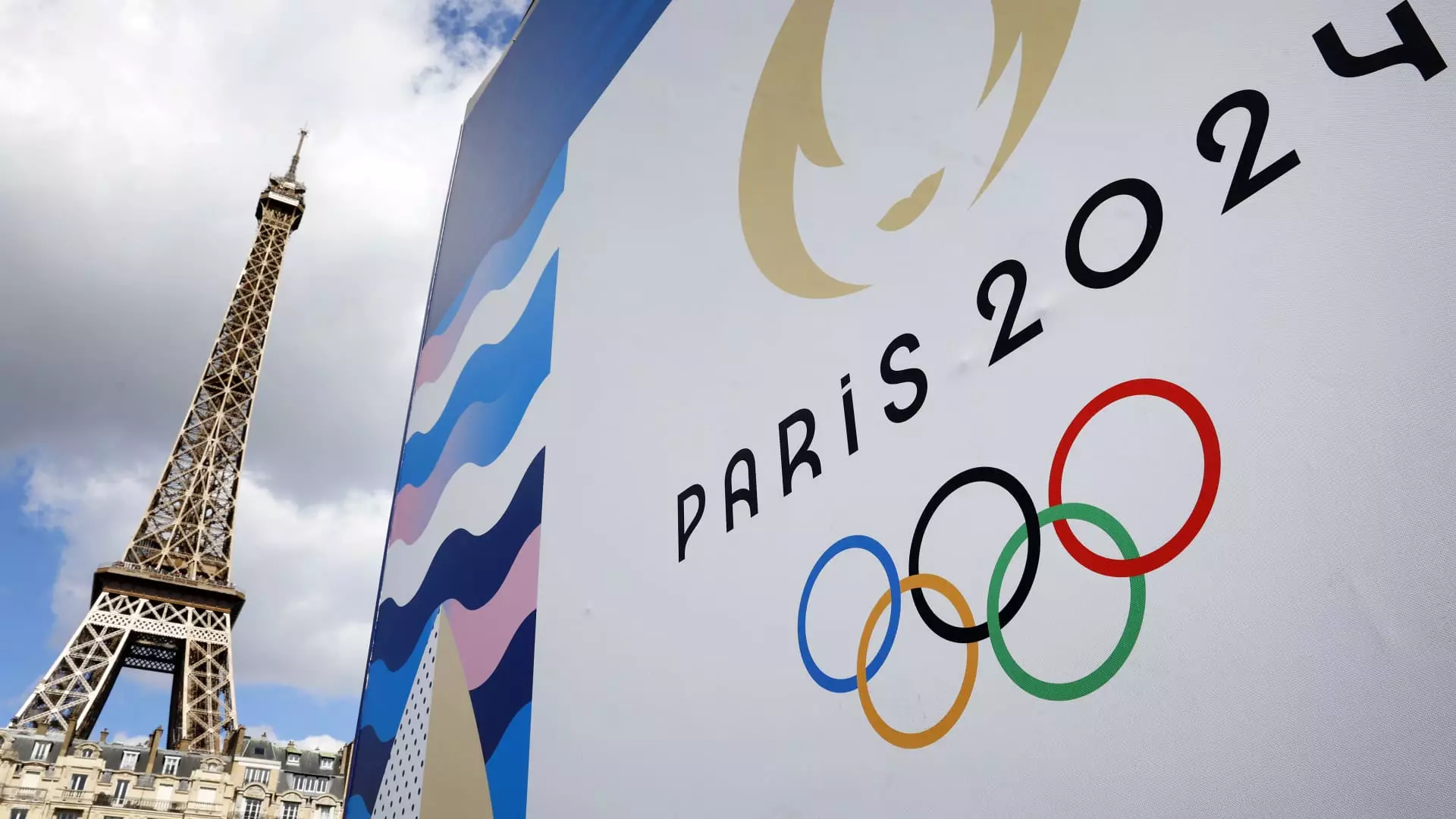Paris, known for its romantic allure and rich history, is facing a significant decline in tourist numbers this summer. The upcoming Olympic Games in the city have caused a shift in travel patterns, with many potential tourists choosing to explore other destinations. Delta Air Lines, one of the major carriers to Paris, reported a substantial decrease in bookings, resulting in a $100 million loss for the airline. This unexpected downturn in travel demand has caught the attention of industry experts and raised concerns about the overall impact of the Olympics on the tourism sector.
Delta Air Lines, in partnership with Air France, holds a dominant position in the U.S.-France travel market, with a combined market share of approximately 70%. However, the airline’s CEO, Ed Bastian, expressed disappointment at the lackluster interest in Paris this summer. He attributed the decline in demand to the focus on the Olympics, which he believes has deterred traditional tourists from visiting the city. Air France-KLM, the parent company of Air France, also projected a significant revenue hit during the Olympic period, further highlighting the challenges faced by the travel industry in Paris.
Despite the current slowdown in travel to Paris, industry experts remain optimistic about the post-Olympics period. Both Delta Air Lines and Air France-KLM anticipate a surge in demand for travel to Paris after the conclusion of the Olympic Games. The appeal of the city’s cultural attractions and historical landmarks is expected to draw tourists back, leading to a recovery in tourism numbers. The period following the Olympics presents an opportunity for airlines to capitalize on renewed interest in travel to Paris and boost their revenue.
The surge in hotel prices during the Olympics has pushed many travelers to reconsider their summer vacation plans. Prices for upscale hotel rooms in Paris are set to increase by as much as 45% in July and August, making it a less attractive destination for budget-conscious travelers. This trend has led to a shift in travel seasons, with more tourists opting to visit Europe in September and October instead of the peak summer months. Airlines like Delta are adapting to this change by focusing on expanding their services during the off-peak period to cater to the evolving needs of travelers.
Despite the decline in travel to Paris, there is a growing interest in alternative destinations among travelers. Delta Air Lines has observed a surge in travel to Japan, driven by a favorable exchange rate for U.S. tourists. The strengthening of the yen against the dollar has made Japan more affordable and appealing to American travelers, leading to an increase in bookings to the country. This shift in travel preferences underscores the dynamic nature of the tourism industry and the need for airlines to adapt to changing consumer behavior.
The impact of the Olympics on summer travel to Paris has been significant, with a noticeable decline in tourist numbers and revenue for airlines. While the immediate outlook for travel to Paris during the Olympic period appears challenging, the post-games period presents an opportunity for recovery and growth in tourism. By understanding changing travel patterns, adapting to shifting seasons, and tapping into emerging travel trends, airlines can navigate the complexities of the tourism industry and position themselves for long-term success.

